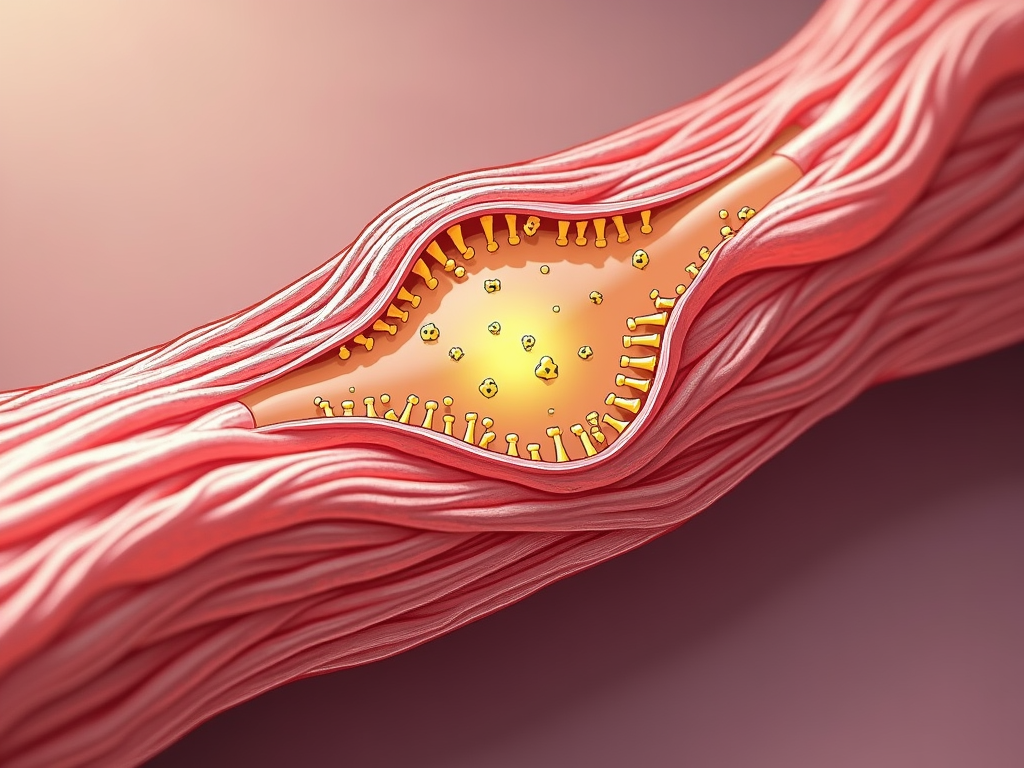Ever wondered why your muscles seem to grow more when you're not working out? It's all about rest. In this article, we'll explore the science behind muscle growth and why rest is just as important as your workouts. Whether you're embarking on a 30-day fitness challenge for building muscle or simply looking to improve your fitness routine, understanding the role of rest can make all the difference.
The Science of Muscle Growth
Muscle growth, or hypertrophy, occurs when your muscle fibers repair and grow stronger after being stressed during exercise. When you lift weights or perform resistance training, you create tiny tears in your muscle fibers. These tears are a good thing—they signal your body to repair and reinforce the muscles, making them bigger and stronger. However, this repair process doesn't happen while you're working out; it happens when you're resting.

Think of your muscles like a construction site. Your workout is the demolition phase, where you break down the old structures. Rest is the rebuilding phase, where new, stronger structures are built. Without adequate rest, your body doesn't have the time or resources to complete the rebuilding process, and you might end up with a half-finished project—or worse, a setback.
Why Rest is Essential
Rest is not just about avoiding injury; it's a critical component of muscle growth. Here's why:
- Protein Synthesis: During rest, your body increases protein synthesis, which is the process of building new proteins to repair and grow muscle fibers.
- Hormone Regulation: Rest helps regulate hormones like testosterone and growth hormone, both of which are essential for muscle growth.
- Energy Restoration: Your muscles store energy in the form of glycogen. Rest allows your body to replenish these energy stores, so you're ready for your next workout.
- Nervous System Recovery: Intense workouts tax your central nervous system. Rest helps it recover, ensuring you can perform at your best.
I learned this the hard way. A few years ago, I was so eager to see results that I worked out every day without taking rest days. I thought more was better, but I was wrong. My progress stalled, and I felt constantly fatigued. It wasn't until I started incorporating rest days that I began to see significant improvements in my strength and muscle size. Rest isn't just a break; it's a vital part of the muscle-building process.

How Much Rest Do You Need?
The amount of rest you need depends on several factors, including your workout intensity, fitness level, and overall health. Here are some general guidelines:
- Between Workouts: Aim for at least 48 hours of rest between working the same muscle group. For example, if you work your legs on Monday, wait until Wednesday to work them again.
- Sleep: Get 7-9 hours of quality sleep each night. Sleep is when your body does most of its repair work.
- Active Recovery: On rest days, consider light activities like walking or yoga to promote blood flow and aid recovery without stressing your muscles.
If you're participating in a 30-day fitness challenge, make sure the program includes rest days. A well-designed challenge will balance intense workouts with adequate recovery time. For example, a 30-day fitness challenge for building muscle might have you working different muscle groups on alternate days, with full rest days sprinkled throughout.
Optimizing Rest for Maximum Gains
To get the most out of your rest periods, consider these tips:
- Prioritize Sleep: Create a sleep-friendly environment by keeping your room cool, dark, and quiet. Avoid screens before bed, and try to go to sleep and wake up at the same time each day.
- Nutrition: Fuel your body with the right nutrients. Protein is essential for muscle repair, so make sure you're getting enough in your diet. Carbohydrates help replenish glycogen stores, and healthy fats support hormone production.
- Hydration: Stay hydrated to support all bodily functions, including muscle repair.
- Stress Management: High stress levels can hinder recovery. Practice stress-reducing activities like meditation, deep breathing, or spending time in nature.
- Listen to Your Body: If you're feeling overly fatigued or sore, it might be a sign that you need more rest. Don't be afraid to take an extra day off if needed.

Incorporating these practices into your routine can make a significant difference. For instance, during a fitness challenge, paying attention to your nutrition and sleep can help you recover faster and perform better in each workout.
The Role of Rest in Family Fitness
Rest is not just important for individual fitness goals; it's also crucial when engaging in family fitness activities. When working out with family members, especially children, it's essential to balance activity with rest to prevent burnout and injuries. Plan rest days where the family can engage in relaxing activities together, like a leisurely walk or a movie night. This not only aids physical recovery but also strengthens family bonds.

Common Myths About Rest and Muscle Growth
There are several myths surrounding rest and muscle growth that can lead to confusion. Let's debunk a few:
- Myth 1: More workouts mean more muscle. While consistent training is important, overtraining without adequate rest can lead to muscle breakdown rather than growth.
- Myth 2: Rest days are for the weak. Rest days are for the smart. They allow your body to recover and grow stronger.
- Myth 3: You only need to rest when you're sore. Soreness is not the only indicator of muscle fatigue. Even if you're not sore, your muscles still need time to repair and grow.
Understanding these myths can help you make better decisions about your training and recovery. For example, during a 30-day fitness challenge, it's crucial to follow the rest days as prescribed, even if you feel like you can push through.
Conclusion
Rest is not just a break from your workouts; it's an essential part of the muscle growth process. By understanding the role of rest and incorporating it into your fitness routine, you can optimize your results and avoid burnout. Whether you're tackling a 30-day fitness challenge or simply looking to build muscle, remember that rest is your ally. Prioritize sleep, nutrition, and stress management, and listen to your body. Your muscles will thank you.
Discuss Here